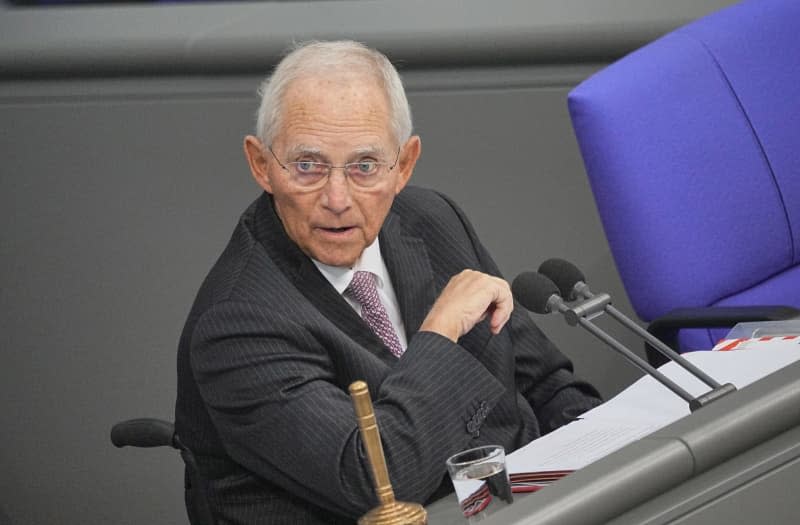German politician Schäuble's memoir details 2015 bid to oust Merkel

- Oops!Something went wrong.Please try again later.
- Oops!Something went wrong.Please try again later.
- Oops!Something went wrong.Please try again later.
In his posthumous memoir, longtime German conservative politician and former finance minister Wolfgang Schäuble details an attempt by fellow Christian Democrats (CDU) to overthrow then-chancellor Angela Merkel during the 2015 refugee crisis.
The memoir alleges that a prominent Bavarian politician tried to recruit him as a potential chancellor candidate as part of an effort to replace Merkel.
The incident is recounted in an excerpt from the memoir published on Wednesday in the magazine Stern. The book, "Memories: My Life in Politics," is due to be published next week.
Schäuble was the longest-serving member of parliament in German history. He died on December 26 at the age of 81.
Schäuble recounts that tensions ran high within the conservative bloc during 2015, and that leaders of the CDU's Bavarian sister party, the Christian Social Union (CSU), made an attempt to replace Merkel as chancellor - and tried to recruit Schäuble as her replacement.
As Schäuble recalls, Bavaria's state premier at the time, Horst Seehofer, denounced Merkel at the CSU's party conference in 2015 and "read the riot act to the chancellor like a schoolgirl" - while Seehofer's predecessor, Edmund Stoiber, agitated against Merkel as well.
Stoiber "wanted to persuade me to topple Merkel in order to become chancellor myself," Schäuble writes.
But Schäuble writes that he firmly rejected the suggestion.
"As with [former CDU chancellor Helmut] Kohl decades earlier, I stuck to my conviction that toppling my own chancellor could only harm our party in the long term without really solving the problem," according to the excerpt. "That was my understanding of loyalty, which may seem a little antiquated by today's standards."

